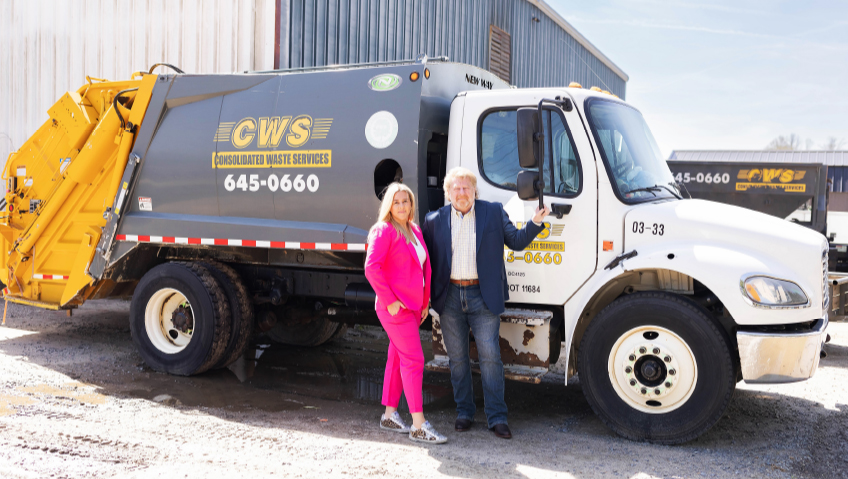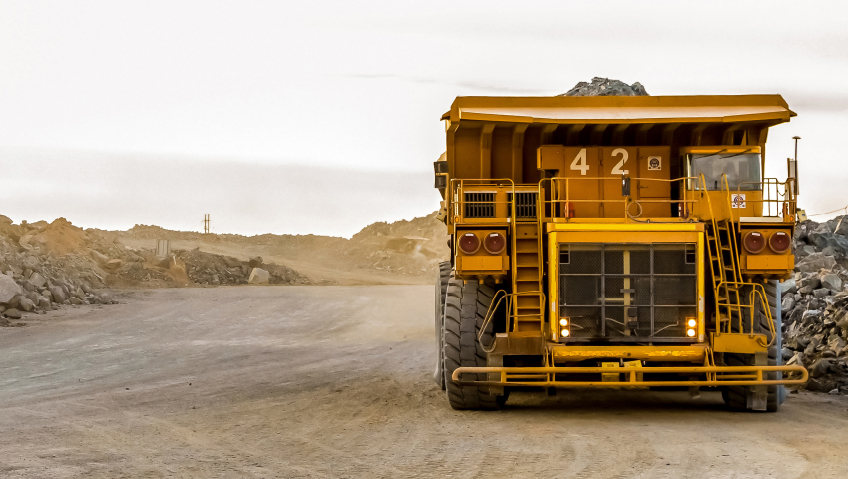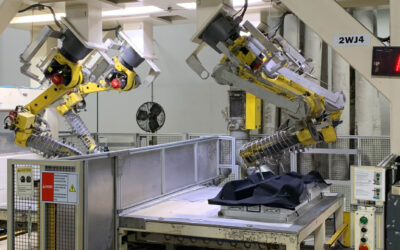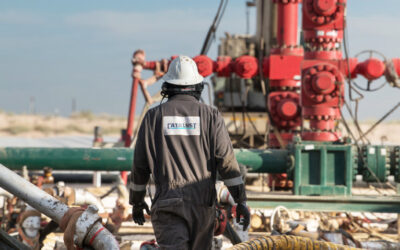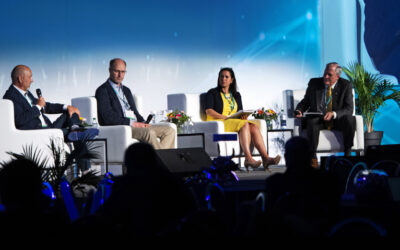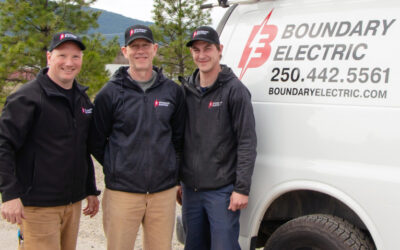Morgan Alexander wants people to think garbage.
As Vice President of Consolidated Waste Services (CWS) in Asheville, North Carolina, she herself spends a lot of time planning and thinking about the management of trash across industrial, residential, and commercial sectors, and how to improve it.
Founded by Alexander’s father – who had previously worked extensively within the trash industry – CWS started in 2003 with one truck he drove himself, answering phone calls by day and handling billing and administrative work in the evening. Nineteen years later, CWS has gone from a couple of employees to around 75.
“Since I was a little girl, I’ve always known about trash,” says Alexander. “I love the design concept and problem-solving side of the construction within the realm of trash.”
After graduating from Appalachian State University in 2009, Alexander worked for her father, running the front desk and learning the business, but left for a while to explore career paths, including medical sales.
During her five years away, she married, moved from Asheville and back again, and fell pregnant with her first son. Her job, however, required being away from home a lot, and she decided that working with her father offered a better work-life balance.
Since returning to CWS at the start of 2016, her dad has taken a step back, letting Alexander run the day-to-day operation, but he’s still there behind the curtain.
“Whenever I need to chat with him, he still makes his presence known, and we have a great partnership,” she says. “He stays in his lane, and I stay in mine when dealing with the business.”
Alexander’s proud that, since her return, CWS has grown over 40 percent in gross revenue. She believes that one of the main reasons the family duo has been so successful is that she and her father have very different management styles.
“He’s very old school, very strong work-ethic oriented, and everyone needs to report to work,” she says. “We’re here to do a job and to do the right thing. I completely agree with him, I just also bring a different approach in trying to find a balance with employees.”
Work-life balance is very important to Alexander, and as a mother of two, she understands the life situations employees can face. She and her dad work together to understand the different factors affecting different employees.
“It’s almost like a game of tennis,” says Alexander. “We’re just bouncing ideas back and forth, input, situations, among other things with one another that I think allow us to be successful and have such a good balance.”
It’s a balance that comes in handy. While CWS isn’t “the big-guy trash company,” they operate at that level, and while it’s the largest privately-owned waste hauler in Western North Carolina, Alexander plans to keep it low-key.
“I like to keep that mom-and-pop feel,” she says. “When I interview someone, I always start by saying this isn’t your typical interview. I want to know you as a person outside of work. I want to know what excites you, do you have kids, what do you like to do with your family, what makes you happy when you’re not at work.”
She says knowing those things allows her to get to know them not as an employee, but on a personal level because CWS is a family.
“I also want every employee to feel comfortable talking with me and my father because I feel that when they’re comfortable, I get more insight into what’s going on – into the things that I don’t see every day.”
During COVID, she says, the CWS office was a daycare – literally. One employee whose daycare closed due to the pandemic simply brought her toddler to work, where she was welcomed with open arms.
“I brought a playpen from home and the young child took naps in my office,” says Alexander. “Everyone here would help care, and now that little girl is going off to kindergarten next year. When she is off from school or sick she will come and sit in my office and watch Barbie movies.”
That sense of family extends to those employees who have worked for her father at other companies and have known Alexander since she was little, and she wouldn’t have it any other way.
“It’s just very much that we know when you’re having a bad day, and we know if things aren’t going the way you want. We’re all here for each other.”
She adds that maintaining those relationships allows employees to be truthful, and they take more accountability when they mess up.
“One of my biggest pet peeves is micromanaging. If I must micromanage someone then it’s probably not going to be a good fit,” she says. “Each employee is different and what makes them do well and excel may be different than other employees.”
Alexander says you’re always trying to reinvent the wheel as an employer. That means you’re training and spending time – sometimes months – before drivers are fully equipped to go out on the road alone.
“There’s a lot of cost in training someone and making sure they’re safe when their trucks aren’t parked,” she says. “In interviews, I will ask if they are looking for a career or just a place to set your feet right now? Sometimes people looking for right now are still a good fit, but with keeping that in mind, I think it also helps to know where to invest your time and to keep your focus.”
All-around efficiency is vital when it comes to running a successful business, and it’s something she’s helped elevate by managing routes and drivers to make them more time- and fuel-economical.
“We’re going to work smarter not harder because time and resources are money,” Alexander says. “We have to be smart in how we’re doing things.”
Delegating one driver to one location has helped provide exceptional service to customers including Walmart, Sam’s Clubs, various construction companies, restaurants, and apartment complexes.
“Sometimes the needs of customers can be really demanding,” says Alexander. “Also, a lot of the time trash is the last thing that is thought of. One of my biggest goals is, how can I put trash into the forefront of what people think about when it comes to a construction site, a new apartment complex, or a subdivision they’re building? By helping customers understand the importance of planning for their waste needs instead of being an afterthought, we are able to make sure that a truck can fit into their location.”
The problem is more common than many think. Often, the wrong size corral is built for containers, resulting in money wasted and a prolonged project all for just trash, she says. Due to being unaware of how the waste disposal would need to flow, some architects will neglect to plan for a more efficient method of waste disposal, such as a compactor, which requires a certain depth of concrete to withstand the weight of the truck and the equipment. You must make sure that you also consider the type of truck that would be used for the container chosen for your waste needs.
“You must take measurements into consideration,” says Alexander. “Also, what are their recycling waste needs? Are they going to single-stream everything? What’s the flow, and operationally speaking, what’s going to be living there? It’s a lot to think about.”
Despite her deep experience and impressive expertise, Alexander still encounters some hostility in the industry, one where there are typically few women in evidence, especially at the upper levels. However, she’s made many connections and friendships through the years as the company’s forged ahead, in no small part due to her commitment.
“There’s nothing that’s ever beneath me,” she says, including getting her hands dirty. “I keep my work boots in my office. My mornings begin with me checking in with my operations manager to discuss our agenda for the day and if there are any issues that need to be addressed. There have been times when we have had a slinger out, and I’ll throw on my boots and help with slinging trash.”
While she doesn’t do that to get recognition from employees, she does want them to understand she’s there to help in any way she can: She not only feels responsible for those employees but their families as well.
“That’s why I have no intention of ever closing the doors of my father’s business. I have these men and women who have said to me, ‘I’m here with you for the long run, I’m here as long as you keep working,’ and I think that pushes me to do more,” she says. “CWS is my father’s baby, and I know that it makes him proud that I care for this business as much as him. I’m very proud of what he has accomplished, and I want to carry on his legacy with the business.”
And when she’s not busy slinging trash, Alexander can drive the trucks, too, surprising one customer in particular as she backed up an entire half-mile driveway to deliver a box.
“I put the box down and he came around from the other side of the job site as I’m getting the box off the back of the truck, and he looked at me and said, ‘Is that you, Morgan?’ And I said, ‘You needed a dumpster, right? You’re a great customer of ours and I’m here to take care of you.’ He called my father and said, ‘I didn’t know your daughter can drive a truck.’ Each and every customer for us is like another extension of family.”
Her dad, she adds, is a people-pleasing person who takes a lot of pride in customer service. Alexander tries to find the middle ground while keeping in mind her commitment to employee health and welfare – and that means sometimes taking a tough stance with the demands of customers.
“When CWS was smaller it was very easy to accommodate same-day service. Since the growth of the business, our schedule can become full quickly. We sometimes have to tell customers that we cannot fulfill their needs for same day and it will have to be the next. Due to the level of service my father provided when he started the business, they will call him hoping that he can make a spot for them that day,” she says. “It never fails, but I still make sure to make the customers a priority. It may not be exactly when they want it, but they understand.”
Bigger challenges lately have included ongoing supply chain issues, labor shortages, and rising fuel costs, but Alexander strives to always maintain a productive and positive employee environment despite adversities.
As the company continues to grow, she aims to reduce operating costs while eliminating duplication of effort. CWS has also reached a point where Alexander needs a new office to accommodate the swelling demands of her duties – despite the havoc of the pandemic, the company has grown and prospered.
“During COVID, we never shut down, not even for a day,” she says. “Construction was considered essential. The construction industry wasn’t stopping; the amount of trash at apartment complexes was exponentially greater because everyone was stuck at home. Grocery retailers were going crazy due to everyone stocking up.”
Alexander hopes that as time goes by, she can continue to not only have a hand in garbage disposal but help customers think about it sooner rather than later.
“Don’t forget about the trash! I want people to think of me when beginning a project,” she says. “I want people to ask, ‘what are your trash solutions for us? What are our options? What’s most cost-effective?’ It’s pretty cool when you look at it that way. I love this side of the business and looking and exploring for different ways to get rid of waste.”

